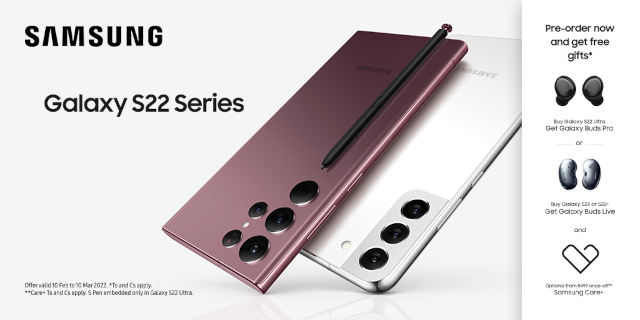YUMBI and Uber Eats partnership recipe for restaurateur recovery
By Staff Writer 15 March 2022 | Categories: feature articles
Features sponsored by the Samsung Galaxy S22 series:
In the past two years, ordering food in from restaurants has become part and parcel of coping with the pandemic. It is no secret though that the food and drink industry has been hit hard by multiple lockdowns, with restaurant visits often being supplanted by food delivery.
As things begin opening up again though, there is some light on the horizon for beleaguered restaurateurs, as software provider YUMBI has teamed up with Uber Eats in a bid to help restaurant owners move forward.
The company explained that by integrating its offering with Eats and utilising the Uber Direct services, YUMBI has added a critical delivery component to its data-rich, fully integrated online ordering and customer intelligence solution for multi-location quick service restaurants (QSRs).
YUMBI partners with multi-location QSR brands to ensure they deliver the high-quality ordering experience customers have come to expect. “With YUMBI, brands have complete control over their platform, ordering ecosystem and customer relationships. They are able to engage directly with customers and gain critical insight from usage analytics,” explains Chris Sweidan, Managing Director of YUMBI.
YUMBI’s custom-branded ordering apps and websites also let customers place orders directly with the restaurant, eliminating the cost and loss of control associated with using third parties. A wide range of integrations keeps brands agile, allowing them to move and respond swiftly.
Now, with the integration between YUMBI and Uber Eats, multi-location QSRs can offer delivery directly to their customers; putting control of the customer’s ordering experience back where it belongs - in the hands of restaurant owners.
“In addition, by owning the data relating to their customers’ buying patterns, demands and choices, our clients are better placed to communicate marketing promotions to them. They can also negotiate attractive delivery rates,” Sweidan pointed out.
“Until recently, our solution did not include the delivery aspect of customer requirements. By integrating with Uber Eats and utilising the Uber Direct product, we are now able to cover the full spectrum of the process,” he continued.
Sweidan reiterated that the Covid-19 pandemic has seen a sharp rise in online orders, with consumers expecting the convenience of quick, efficient delivery. In fact, any quick service restaurant that fails to offer delivery can expect to receive a high number of customer complaints and ultimately a drop in market share.
At present, there are three ways for quick service restaurants to meet consumer needs. The first is to operate their own fleet of vehicles and drivers, which is not core to the business and brings complexities such as logistics, human capital, vehicle costs, licensing and insurance – all additional factors for business owners to manage.
The second option is to outsource delivery by using a reliable company with a solid track record in logistics, thereby ensuring a good experience for customers. This requires tight integration with the online ordering system as drivers need to be notified to collect orders and consumers expect real-time driver tracking. Without this capability, the process is often manual and results in muddled, unreliable reporting.
Thirdly, quick service restaurants can use aggregators to fulfil the delivery aspect. However, because aggregators act as the middleman between the restaurant and its customers, there is a push for the aggregator to handle the online ordering as well. This means the aggregator owns the customer relationship, and the restaurant merely becomes a supplier.
“The YUMBI and Uber Eats integration solves this problem,” asserted Sweidan.
Of course, as with everything the proof of the peating is in the eating. The company provided us with a case-study of one customer - Pedros Flame-Grilled Chicken – which has already reaped the rewards of the YUMBI-Uber Eats integration.
“Pedros is on a mission to find the juiciest chicken, as well the finest chillies and spices, to create the best flame-grilled chicken in South Africa. Our brand has grown dramatically with more than 65 stores across the country, and with that came the decision to offer our customers a simple, cost-effective delivery and collection solution where they could easily purchase their favourite Pedros meal online at the same prices found in-store,” noted Brad Marshall, the senior marketing manager at Pedros.
“YUMBI offered us a comprehensive solution for our online ordering requirements with a relatively easy onboarding process. The system is tried and tested and backed up by a great support team. For this project to be successful, an important requirement is being able to deliver to our customer base, and with this came the decision to integrate with Uber Eats and utilise the Uber Direct services. It was a no-brainer as the network of delivery people on the Uber Eats platform enjoys more extensive coverage than most, allowing us to deliver to customers we previously may not have been able to.
We are still in the early stages of our Pedros App launch and look forward to this project developing and growing,” he continued.
Counting significantly in its favour is the fact that YUMBI has a decade’s worth of experience in connecting restaurant brands with their customers as a global software platform with a focus on the end customer.
“Thanks to the integration with Uber Eats and the Uber Direct product, our customers can now offer a comprehensive service including delivery, online and telephone ordering, and direct communication of marketing promotions,” Sweidan concluded.
Most Read Articles

Have Your Say
What new tech or developments are you most anticipating this year?




